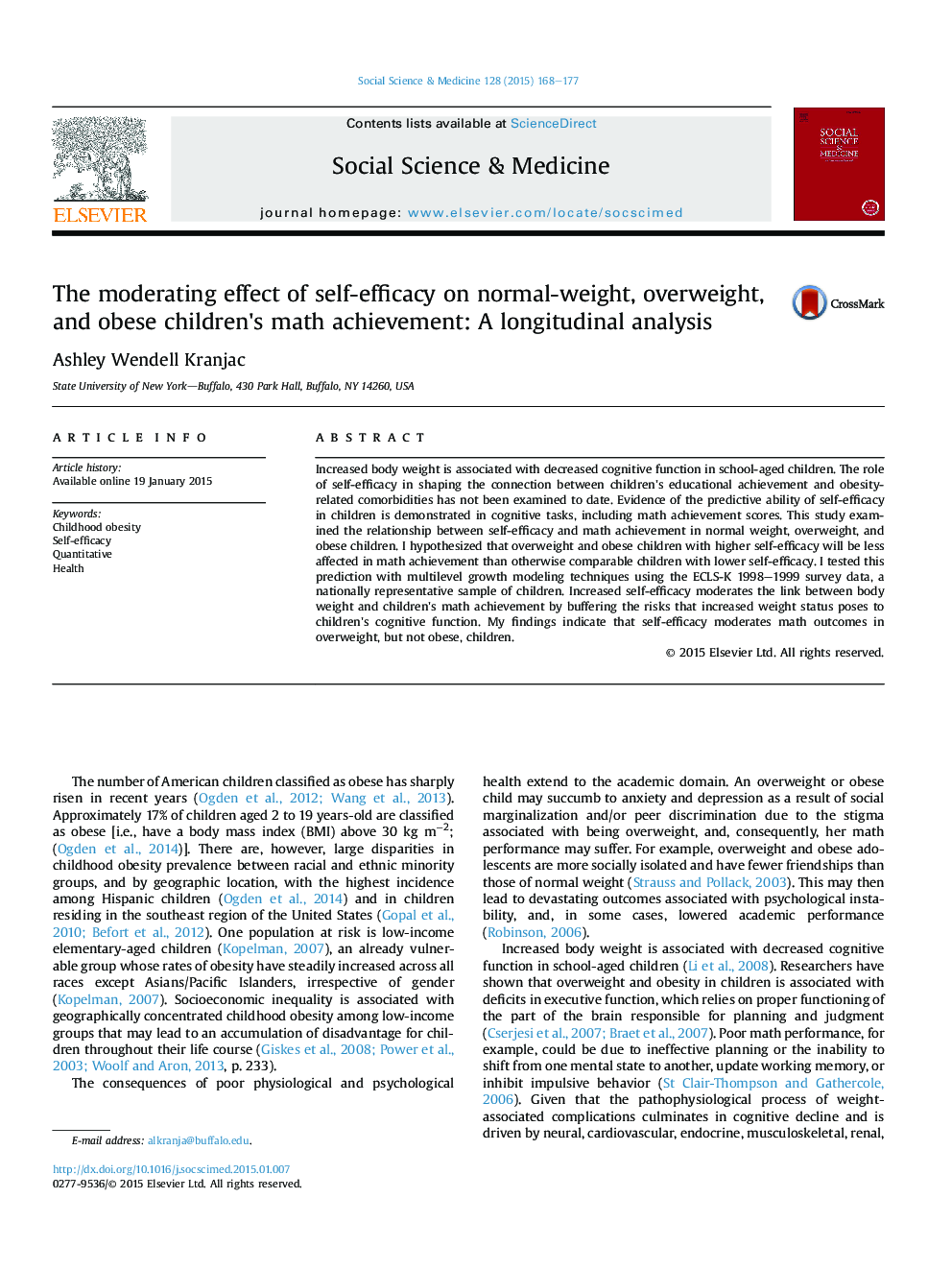| Article ID | Journal | Published Year | Pages | File Type |
|---|---|---|---|---|
| 7333263 | Social Science & Medicine | 2015 | 10 Pages |
Abstract
Increased body weight is associated with decreased cognitive function in school-aged children. The role of self-efficacy in shaping the connection between children's educational achievement and obesity-related comorbidities has not been examined to date. Evidence of the predictive ability of self-efficacy in children is demonstrated in cognitive tasks, including math achievement scores. This study examined the relationship between self-efficacy and math achievement in normal weight, overweight, and obese children. I hypothesized that overweight and obese children with higher self-efficacy will be less affected in math achievement than otherwise comparable children with lower self-efficacy. I tested this prediction with multilevel growth modeling techniques using the ECLS-K 1998-1999 survey data, a nationally representative sample of children. Increased self-efficacy moderates the link between body weight and children's math achievement by buffering the risks that increased weight status poses to children's cognitive function. My findings indicate that self-efficacy moderates math outcomes in overweight, but not obese, children.
Related Topics
Health Sciences
Medicine and Dentistry
Public Health and Health Policy
Authors
Ashley Wendell Kranjac,
